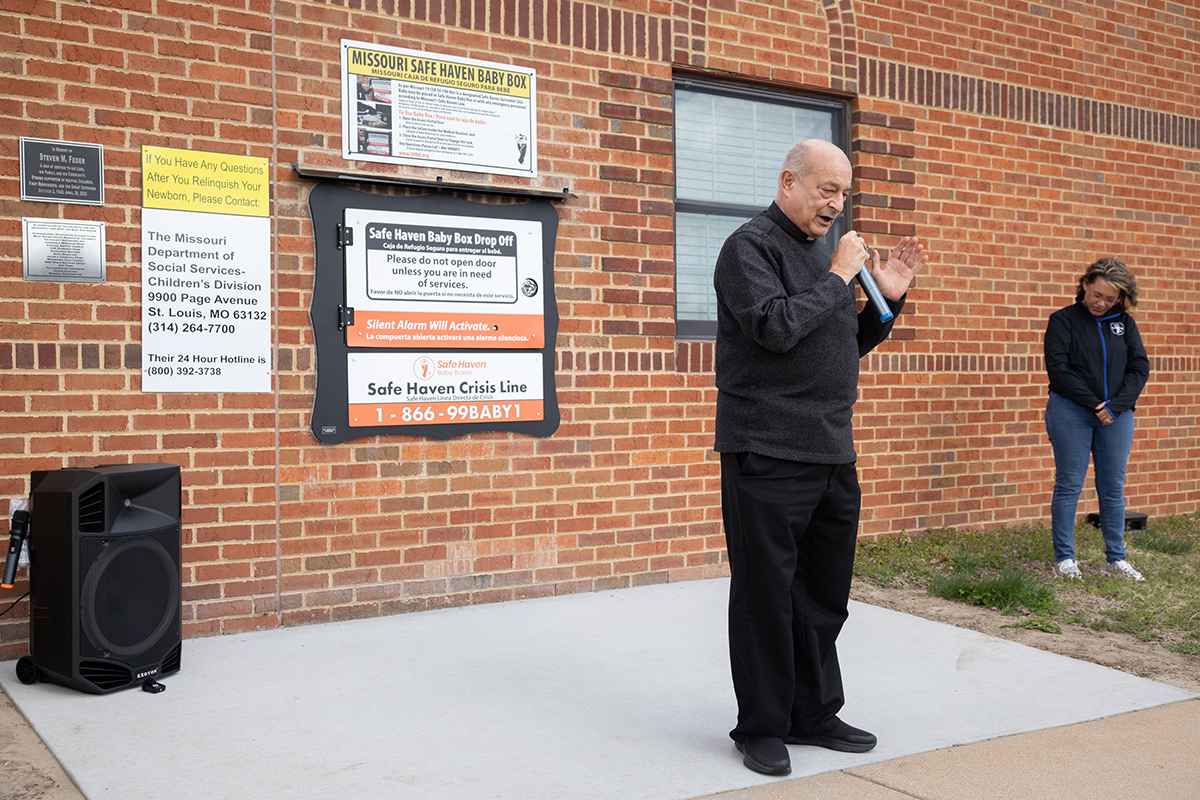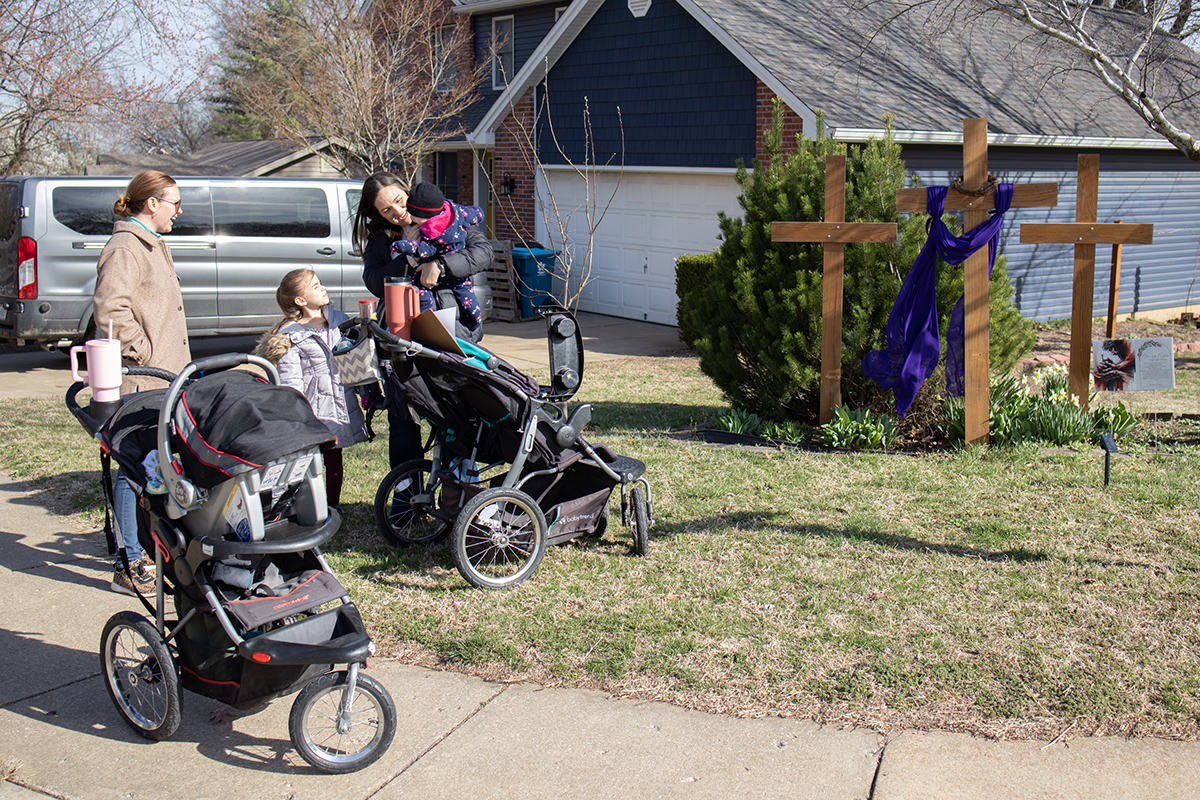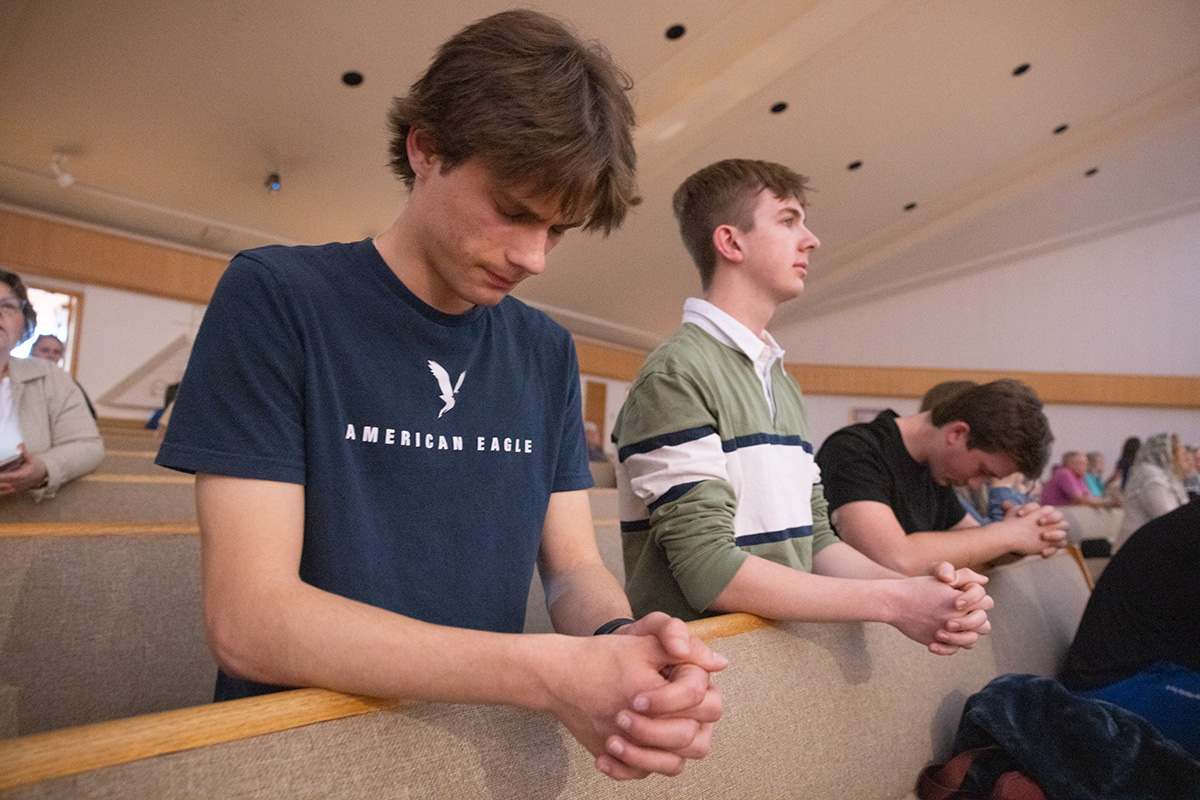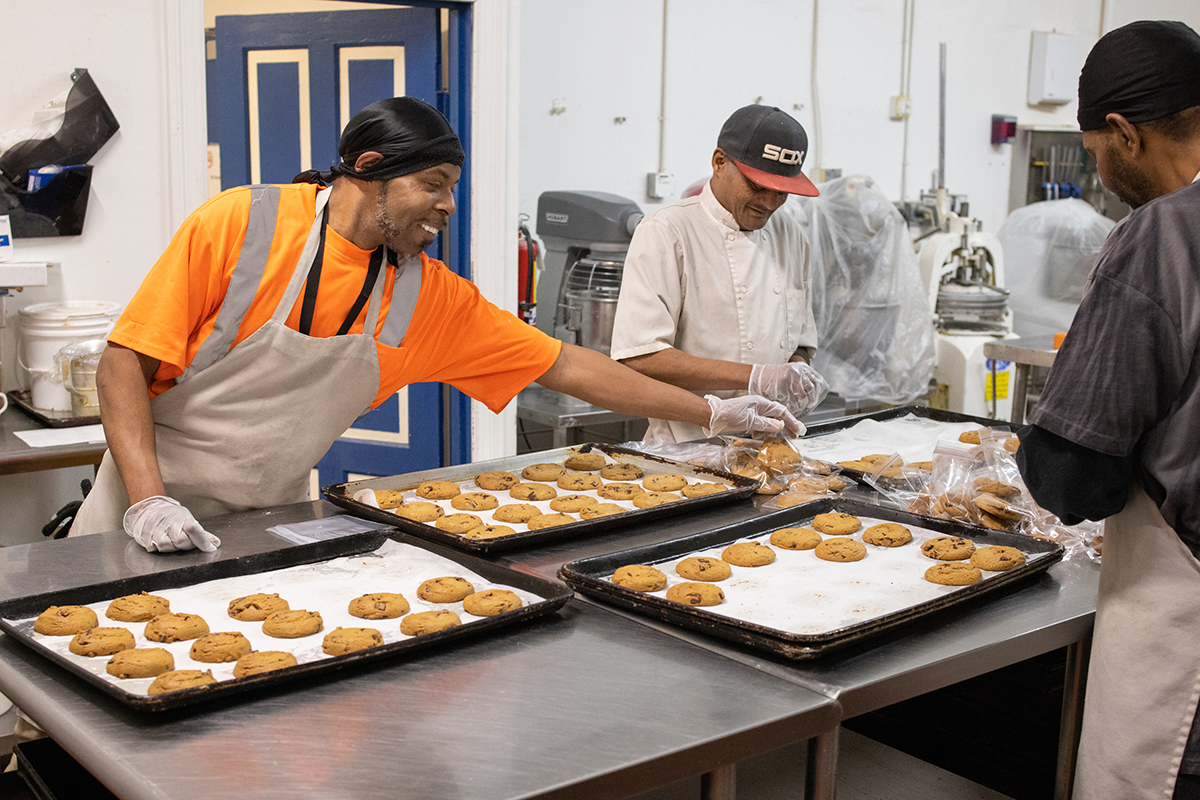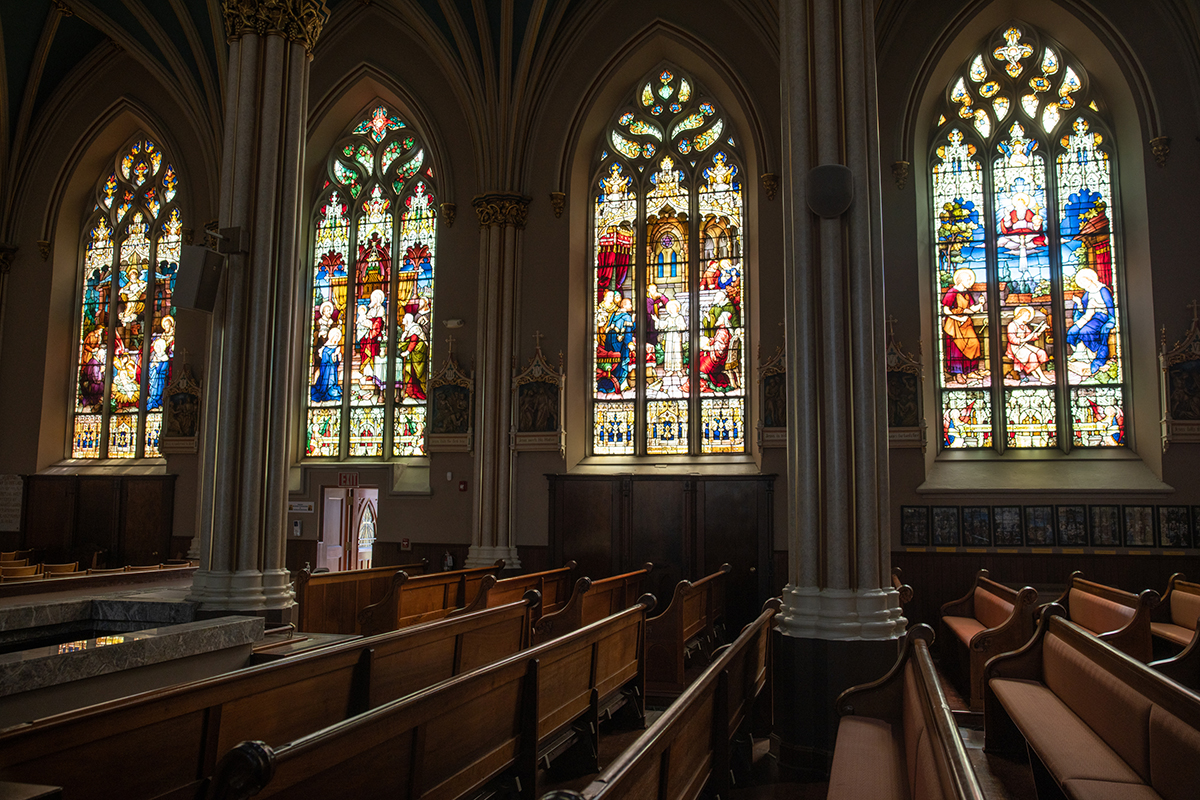Balance is key to approaching coronavirus
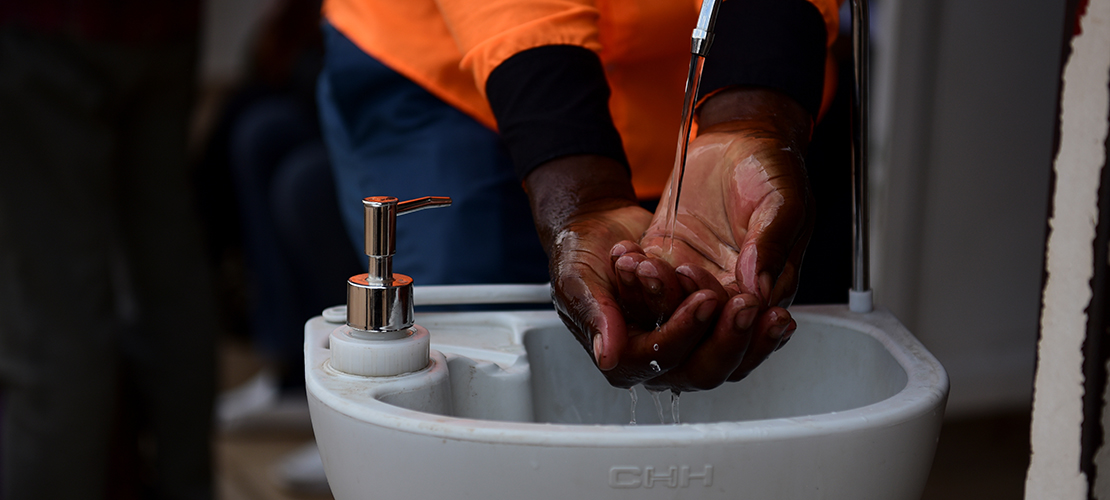
Good judgment and precautionary measures are important
While the Archdiocese of St. Louis is among those taking precautionary measures to mitigate the spread of the COVID-19 novel coronavirus, it’s important to keep things in perspective and use sound reason and judgment, said a local priest and bioethicist.
Worldwide by March 9, more than 108,000 people around the world have been infected, and more than 3,800 killed by the coronavirus, identified as COVID-19, with most in China, the epicenter of the outbreak. There’s been at least one confirmed case in St. Louis County, with a total of 423 reported cases in the United States, as of March 9.
“It’s a delicate balance because you don’t want to get to a point where you put this panic or fear out there that’s overblown in light of even the common flu that goes around,” said Father Peter Fonseca. “But at the same time, we have an obligation to care for our own bodies. And in charity or love toward another, if we have some kind of infectious virus or disease, we have an obligation to do our best to prevent that from spreading to others.”
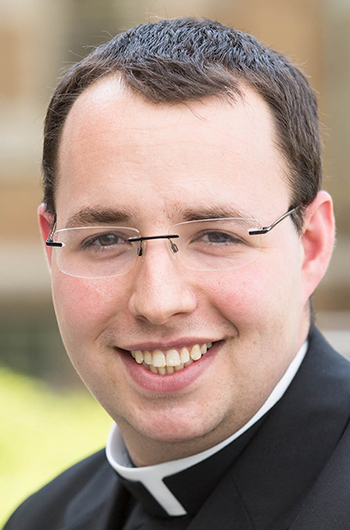
Father Fonseca, who holds a master’s degree in biomedical ethics and a certification in health care ethics from the National Catholic Bioethics Center, said that if we know we or a loved one is sick, we should not go to public places such as work, church or school out of love and respect for others.
At the same time, overreacting by unnecessarily buying medical supplies when we’re healthy increases the risk for others who are vulnerable, such as those with immune-compromised systems, or the worker who doesn’t have health care benefits or sick days.
“You’re trying to strike a balance,” Father Fonseca said. “We don’t need people overloading our emergency rooms with minor sinus issues because the weather is changing. Of course, we want to err on side of caution, but don’t want to take it out of perspective, too.”
The Catechism of the Catholic Church states that “life and physical health are precious gifts entrusted to us by God. We must take reasonable care of them, taking into account the needs of others and the common good. Concern for the health of its citizens requires that society help in the attainment of living-conditions that allow them to grow and reach maturity: food and clothing, housing, health care, basic education, employment and social assistance” (CCC 2288).
Employers also have an obligation to make sure that their employees are provided with proper care, without exposing other people to illness in the process. The U.S. does not have a federal law guarantees workers any amount of paid sick leave. Employees who can’t afford to miss a paycheck often feel compelled to come to work even if they’re sick. Some companies have changed their policies to allow reimbursement for sick workers, while others are allowing employees to work from home.
“If I am asking an employee to stay home or an extra precaution it would seem in charity that I would want, to the capacity possible, to supplement for their needs while they’re out” of work, Father Fonseca said. “It’s just good business practice, too.”
Ultimately, we need to remember that we live in community and shouldn’t be isolated from one another. “Our world is interactive and our actions with other people have consequences,” Father Fonseca said. “Whether that’s through our (personal) actions or showing up to work, there are consequences.”
We should remain extra vigilant about properly washing our hands, staying up to date on symptoms of the virus, and if we experience symptoms to seek proper medical help and to alert proper authorities.
Likewise, we cannot spread further fear by automatically treating others with suspicion, Father Fonseca said. While precautionary guidelines for dealing with others in public spaces is appropriate, “we don’t want to go to such an extreme that we isolate ourselves and live in like a ghost town. It’s a challenge for us to check ourselves … when we hear someone in church cough, do we immediately think coronavirus, or people cough in church every Sunday?”
Archbishop Robert J. Carlson has recommended priests and deacons of the archdiocese take precautionary measures to mitigate the spread of novel coronavirus, colds, influenza and other contagious diseases. While seasonal flu is making a bigger impact, the precautionary recommendations can help protect parishioners from the spread of illness when they gather for Mass.
“In charity or love toward another, if we have some kind of infectious virus or disease, we have an obligation to do our best to prevent that from spreading to others.”

